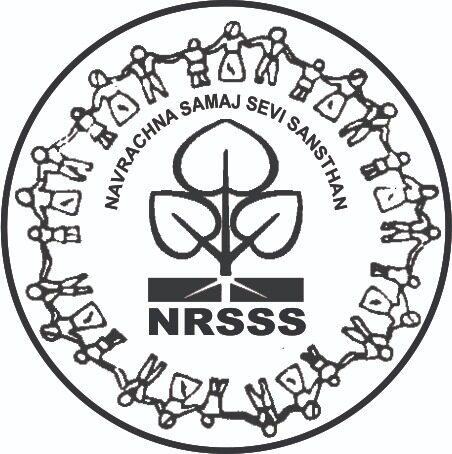Navrachna Samaj Sevi Sansthan is a social non governmental organisation, formed in the year 1987. The organisation has been effectively working since 1987, being conscious of its objectives and tirelessly working for the underprivileged in rural areas.
By organizing capacity building training programs for its office staff, field workers, the underprivileged rural communities and promoting organic farming and generating sustainable livelihood for them.
BACKGROUND
Navrachna Samaj Sevi Sansthan (NRSSS) is located on the north-eastern Madhya Pradesh at Jabalpur Division in the district of Jabalpur that is a part of Bundelkhand and Baghelkhand or Mahakaushal. NRSSS programme coordination and administrative office-cum-training is located at Mohall village on NH-30 40 kms from Katni and 50 kms from Jabalpur both are major rail junctions. Jabalpur is connected to Bhopal and Delhi by air. The closest railway station is Sihora 10 kms from NRSSS centre.
In the late 1980s a group of young social workers with Gandhian orientation working in Raipur area [now Chhattisgarh] took up community organization and development activities among adivasi communities in the Baghelkhand [Katni – Jabalpur area]. This group came to known as Navrachna Samaj Sevi Sansthan [NRSSS] and it was registered as such in 1987. NRSSS was well aware of the poverty and injustice in the region as a result of a very oppressive feudal social system where all resources are usurped by the few while the majority remain within a cycle of poverty and subservience. It was among this majority that NRSSS started its work by taking up the most volatile and daunting issue of land to the landless and peoples’ right to and control over natural livelihood resources of land, water and forest.
Its major purpose has been to highlight the issues that are the root cause of poverty and injustice through awareness building among adivasi and dalit communities in the area and organising them to assert themselves through united non-violent action. Whatever the provocation and challenges NRSSS is working with the most poor and deprived communities with a commitment to the Gandhian precepts of rights to self-reliance, local self-governance through strict adherence to the principle and strategy of non-violent peoples’ action. The vision being to establish a Sarvoday [well being of all] social order that is free of hunger and poverty, where justice prevails and people live with dignity.
From its inception NRSSS has been headed by men and women who have emerged from this grassroots rights and justice struggle in the regions and today it is headed and operated totally by a group of strong women activists.
EXPECTATION FROM OUR PROGRAMMES :-
NRSSS is hopeful to get better results from its activities it is conducting in the village, like:
- Formation and strengthening of CBO’s
- Networking and Advocacy
- Formation of Women Mutual-Help Groups (MHG)
- Cadre Orientation Training
- Identifying, listing and ensuring Job Cards for all eligible beneficiaries through Ajivika Shurksha Samity
- Inclusion and Participation in Government/ Administrative decision making structures
- Developing an understanding of Youth to participate in Social, Educational, Economical area
- Public Hearing Meeting
- Networking and Alliance Building
- Environmental sustainability and self sufficiency
- Developing understanding of Panchayati Raj
- Creating sustainable livelihood for the poor
- Securing and conserving water, land and forest
- Encouraging people for organic farming
- Sharing information of government schemes and its implementation
- Organizing camps for awareness building
- Checking the migration and awareness building
- Encouraging people to work on MGNREGA
- Empowerment and capacity building of women.
STRATEGY :-
Following are the techniques and strategies through which NRSSS is engaged in meeting its challenges and goals:
- Organizing awareness building activities
- Organisation formation in the villages by its workers
- Conducting meetings and other street gathering
- Dialogue with the government to get the work done
- Organizing press conferences and dialogue with the administrative officials
- Formation of self-help groups in the villages and conducting its meetings
- Using folk songs, plays, etc. to explain social vices that exist in their community and organising meeting of two or more villages together
- Helping people to fill their forms to claim their rights to land tenure
- Regular capacity building of Panchayat representatives so that these representatives can get the work done with the use of their rights
